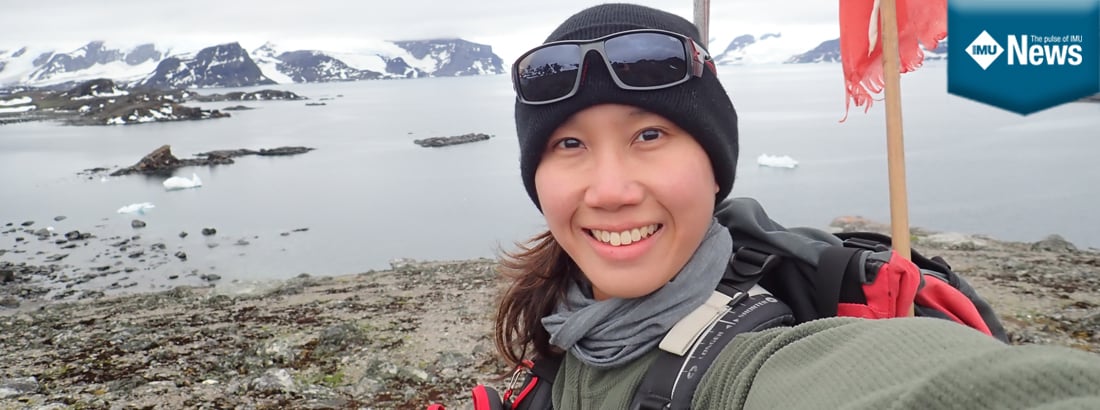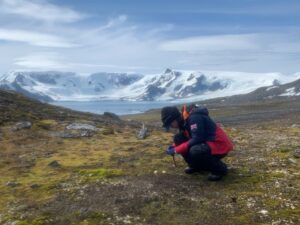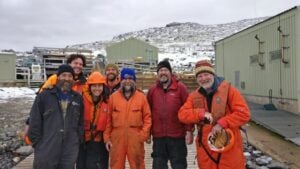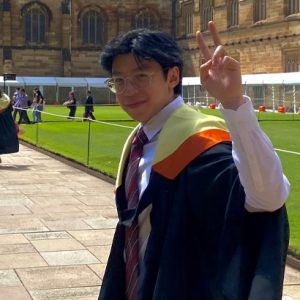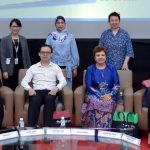On 13 November 2019, an IMU postgraduate student, Nur Alia joined the British Antarctic Survey (BAS) expeditioners in London, United Kingdom, to depart for Punta Arenas, Chile, where they would board the RRS James Clark Ross to sail to Signy Island in Antarctica. The expedition was part of fieldwork for the research project titled ‘Molecular evaluation of biogeography and functional redundancy theory in Antarctic rhizosphere prokaryotic communities’. The project is funded by the Sultan Mizan Antarctic Research Foundation (YPASM) under the Smart Partnership Programme, and aims to evaluate the distribution and interaction of microbial communities in the rhizosphere. The rhizosphere is the area around the plant root (plant-root-soil interface) that has a diverse reservoir of microorganisms and is where numerous biogeochemical processes and microbial interactions take place, and which constitutes a major influence on plant growth and health. As the principal investigator and field personnel for the project, Nur Alia’s objective for the expedition was to collect rhizosphere soil samples from various locations around the island, noting the plant species and the pH, moisture and conductivity of the soil, before sending them back to Malaysia for further analysis. She tells us more here. The ship departed on 15 November 2019 to sail to its first stop, Signy Research Station in the South Orkney Islands which would be my home for the next 14 weeks. Despite being one of the smaller BAS stations, Signy Island (60°43’0″S, 45°36’0″W), formerly known as Station H, is one of the most isolated, with temperatures ranging from -10º C to 10º C and strong winds often making conditions feel much colder. For the summer 2019/2020 season there were 7 members on base, including our station leader Matt Jobson, scientists, engineers and a field guide to assist with field work on Signy.
Over the course of the season I successfully collected soil samples from 8 sites across the island, which have been tested and shipped to the UK and subsequently to Malaysia. In between field collections and laboratory work, as a member on base I helped with kitchen and clean-up duties, as well as work on painting the station’s huts and fences. We also frequently assisted Derren, our zoological field assistant, with his work on the island’s wildlife including catching and weighing penguin chicks and counting the various Antarctic seals present on Signy.
On 28 February 2020, the RRS James Clark Ross returned to pick us up to begin the journey home. Overall I had a fantastic season on Signy, successfully completing sample collections and enjoying work and life on base. I learned many new skills as well as gained new knowledge about Antarctic wildlife and the environment.
I am very thankful to my fellow station members, especially our station leader Matt, for their guidance and patience as I acclimatised to work on base and for all their help with my field activities. I would also like to extend my thanks to IRDI and IMU for supporting the research work. Finally, a very big thank you to YPASM for supporting and funding the expedition and the research project. *The research is funded by YPASM under the Smart Partnership Programme, and is in collaboration with Prof Pete Convey (BAS), Prof David Pearce (University of Northumbria), Dr Nicole Trefault (Universidad Mayor, Chile), Dr Chong Chun Wie (Monash University, Malaysia), Dr Mai Chun Wai (IMU), Dr Ivan Yap (Sarawak Research and Development Council) and Dr Cindy Teh (University of Malaya).




